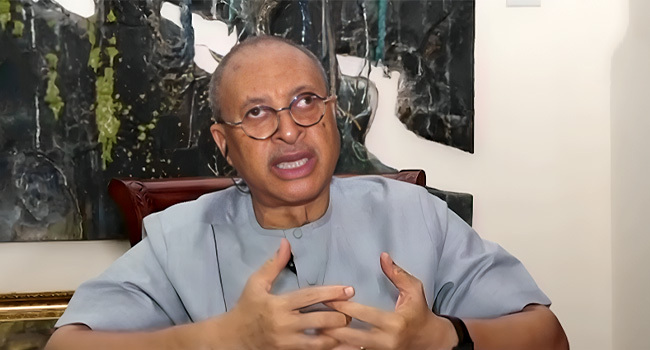Renowned political economist and former presidential aspirant Pat Utomi has articulated a sobering reality: Nigeria’s salvation cannot be entrusted to any political entity or individual leader.
In a recent appearance on ARISE TV, Utomi offered his perspective on the burgeoning discussion surrounding the potential formation of a coalition among opposition parties to challenge the ruling All Progressives Congress (APC) in the upcoming 2027 elections.
The conversation gained traction following the rendezvous between Peter Obi, the Labour Party’s presidential nominee in the 2023 polls, and Atiku Abubakar, his counterpart from the Peoples Democratic Party (PDP).
Going into the intricate fabric of Nigeria’s socio-political landscape, Utomi underscored the pivotal role of cultural values in driving national progress. He also emphasized the limitations of relying solely on political figures to effect transformative change.
“Cultural ethos wield immense power. They mold societal advancement,” Utomi remarked, tracing Nigeria’s historical trajectory. “With the advent of military rule intertwined with oil wealth, a hierarchical power structure emerged, stifling regional dissent and fostering a culture of patronage.”
“The influx of oil revenues further eroded the accountability of governing elites,” Utomi continued. “Public servants blurred the lines between state coffers and personal wealth, prioritizing self-interest over public welfare.”
“Consequently,” he asserted, “the landscape of Nigerian politics transformed into a realm of self-preservation, bereft of genuine commitment to citizenry. No political faction, no matter its rhetoric, can usher in substantive progress amidst such systemic capture.”
“In Nigeria,” Utomi concluded emphatically, “the onus lies on the populace to reclaim ownership of their nation. Neither politicians nor political parties hold the key to salvation. The collective agency of citizens will steer Nigeria towards its rightful path of prosperity.”


